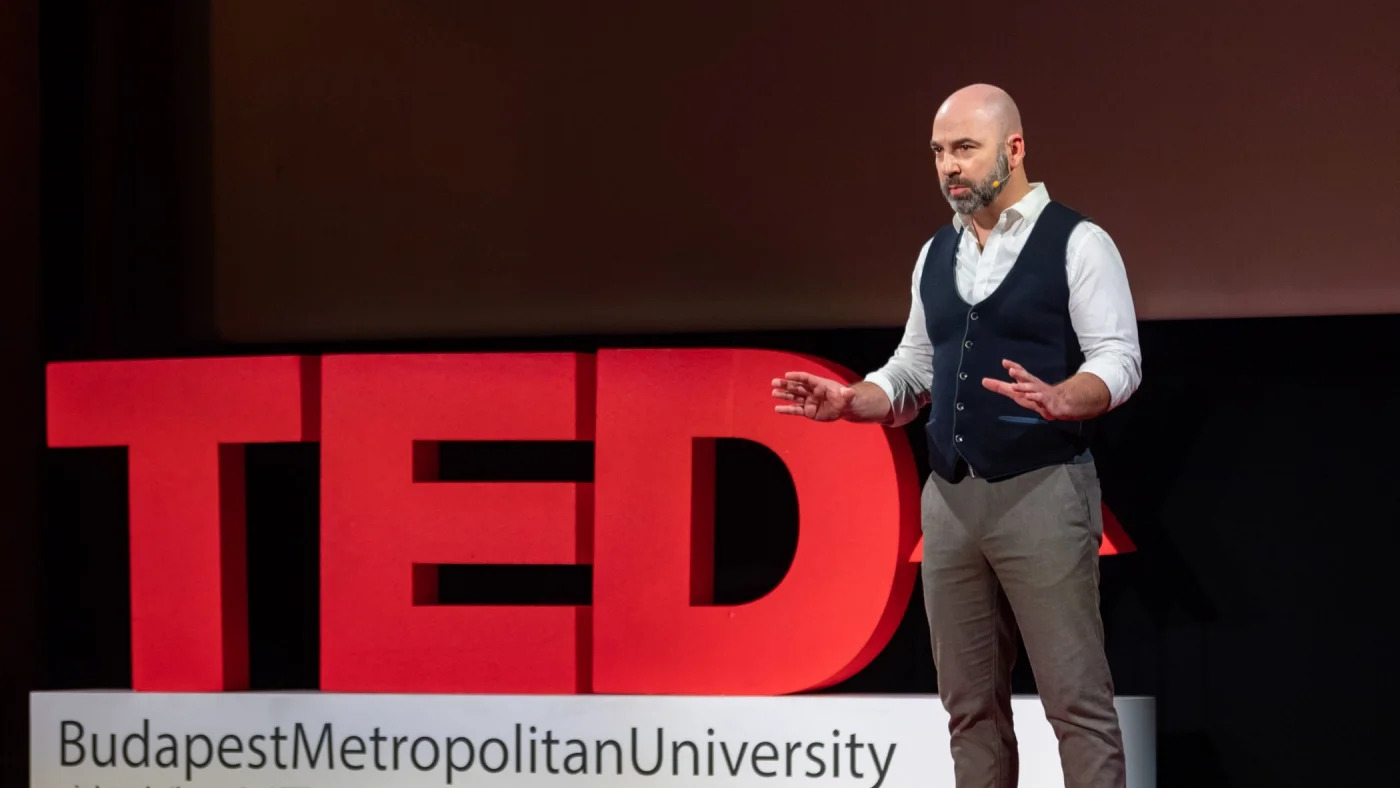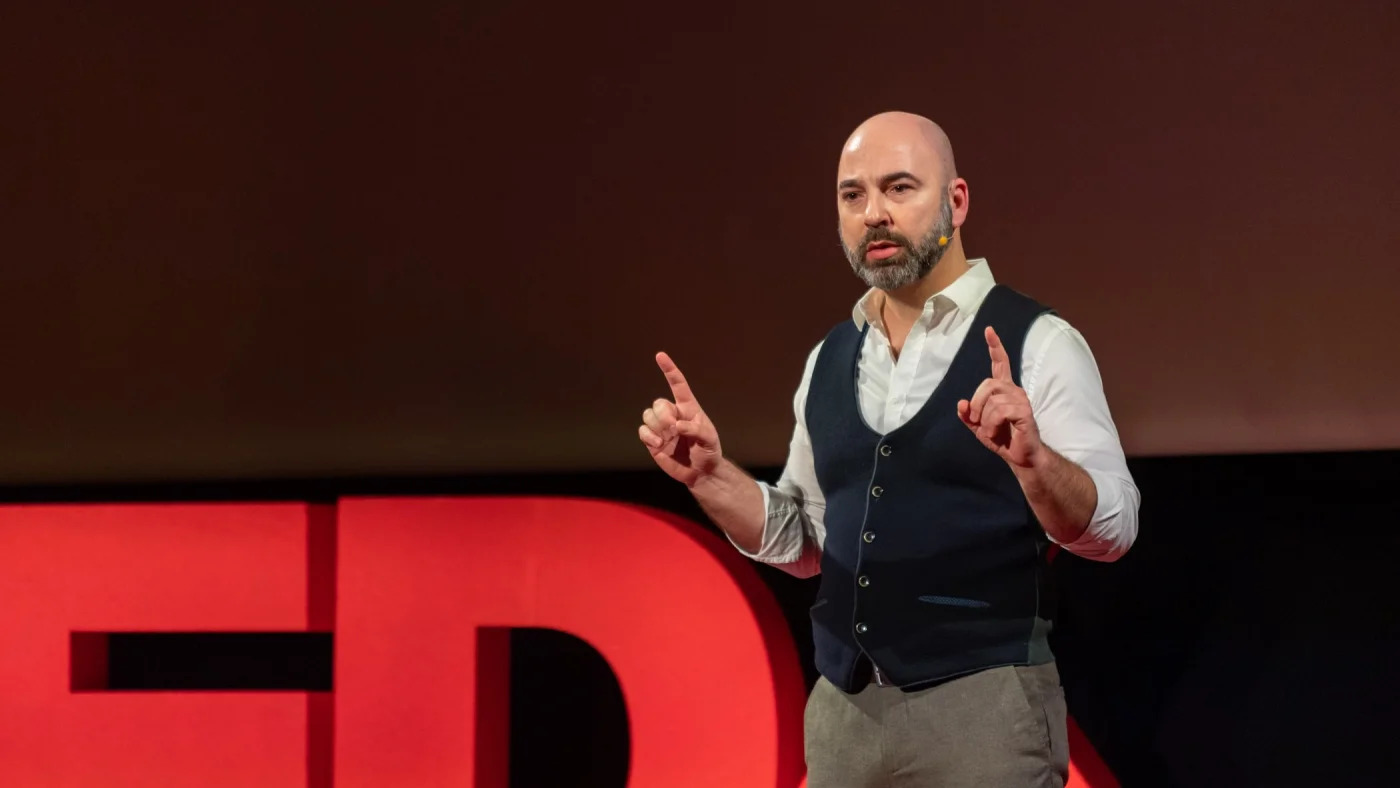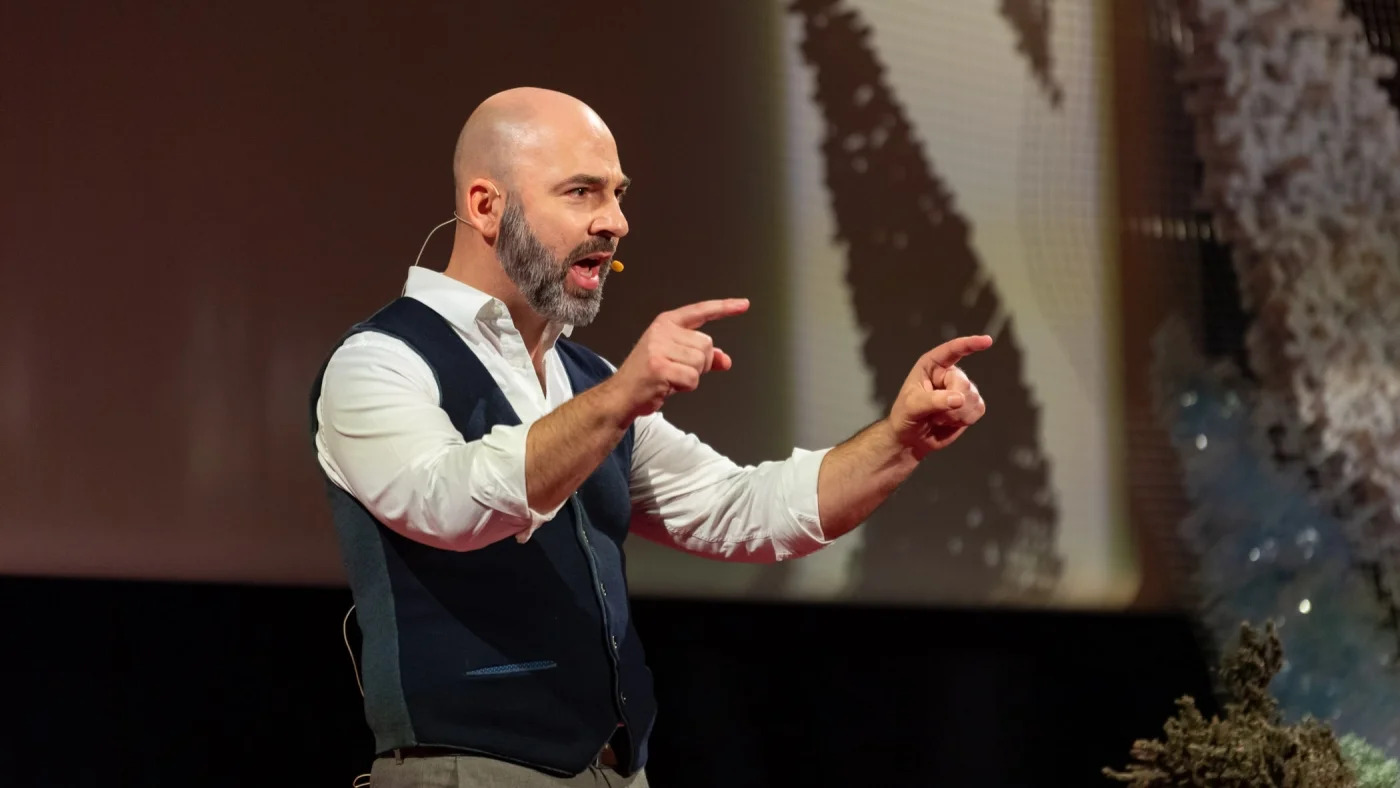Many people and many times have warned of the end of the world. While these predictions used to be more like baseless fantasies than predictions based on a real threat, it is no longer entirely inconceivable that the ship of humanity may indeed run aground.
The problems that we all know, and even perceive, such as climate change, overpopulation or even the food crisis, carry with them the possibility of the collapse of our civilisation.
According to Balázs Stumpf-Biró, collapse researcher, creator of the Betyáros Világ podcast and national representative of the Deep Adaptation movement, the point may be very close where our present reality will seem very distant.
The only thing we can still do is to prepare for the changes.
I spoke to him briefly after his TEDx talk at Budapest Metropolitan University.
The end of the world is not the best term: whatever humanity does to itself and the nature around it, the living world of our planet will recover in a few million years at most from the destruction we have wrought in a few hundred years. Continuity is a certainty, at most we will not be part of it.
The collapse of our civilisation is a very real scenario, and according to Balázs Stumpf-Biró, the chances of this happening are increasing as time goes on. What is more, we will face a collapse the likes of which humanity has never experienced before, so it will be unlike anything else. "Global industrial civilisation is a phenomenon the like of which has never been seen before in the known history of mankind, neither in scale, nor in depth, nor in complexity.
"As the saying goes, you can really fall from a great height, the more complex a system, the 'the greater its collapse, the greater its impact".
At this point, obviously, many will be in vehement denial, even though the past few years have been full of minor collapses. One only has to think back to the supply chains that were disrupted during the pandemic (and even since), or even to recall what happened to this year's sunflower harvest in this country.
In the age of globalisation, there are no longer self-sufficient countries, "and interdependence makes societies vulnerable". Of course, as long as we're talking about fewer smartphones in the shops because of the shortage of chips, we don't feel the problem is so urgent. But Stumpf-Biró says the ability to provide basic necessities could be called into question in the near future, and we will all feel it.
As time goes on, the chances of our civilisation collapsing are steadily increasing
Photo by Dávid Huszár
The promise of a better world is a myth
As the lecture said, many of us believe that our children will have a better life than the previous generation. This has been true for a very long time, but we have come to the end of that era. It is not only Stumpf-Biro who says this; today, we hear in many quarters that today's young people have a poorer life and worse prospects than their parents' generation.
The key to the crash: exponential growth
Already in 1972, in the book "The Limits to Growth", and centuries earlier in Thomas Malthus' "A Study of the Law of Population", it was already indicated that infinite growth on a planet with finite resources is impossible. Aware of this, humanity has begun to act more sensibly in recent years.
This is what sustainable development is all about. It is therefore good news that more and more countries are experiencing stagnating or even declining populations, and that the circular economy is trying to respond to this challenge.
Unfortunately, however, we have probably walked into the trap before we have even realised it. This is due to the human mindset, which is based on linear growth (1, 2, 3, 4, 5, ...), whereas the processes that surround us are exponential (1, 2, 4, 8, 16, ...). This is not difficult to understand, and Balázs Stumpf-Biró gave several examples in his presentation. But to accept it is even more difficult!
Let's take a Petri dish and a single bacterium as a starting point. The latter is known to double in number every minute, the former to fill up at 60 minutes. It's worth asking people you know when they think the vial will be half full. Many will probably say around the 30th minute.
But the answer is shocking: at the 59th minute. Even more astonishing is that at the 55th minute the Petri dish is still 97% empty. Looking at the world around us in this way, it is not difficult to understand: we could be seconds away from the 60th minute and not yet have any sense of what might actually be waiting for us.
What can we do when collapse is inevitable?
According to the collapse specialist, there is not much we can do as ordinary people to avoid collapse, but instead we should focus on preparation. Perhaps the most important part of this process is to understand the processes around us, understand the context and embrace change.
We assess what the consequences are and how they may affect us or our families. We can prepare for collapse, even if it is inevitable, to some extent.
For example, we can think about how many days' worth of food we have in the pantry at home. It won't save us if the world collapses around us, but it's okay if we can buy some time. According to the researcher, this is the easy side of being prepared.
What's really challenging is the mental part of it: "to have the mental strength to face the difficult days ahead".
Collapse, even if inevitable, can be prepared for to a certain extent.
Photo by Dávid Huszár
The biggest risk of collapse is panic and the chaos that ensues. When people do not understand what is happening around them, what to do, where to go, what to expect, they panic and typically make poor decisions.
This is why being honest about scenarios that none of us would want to experience is a vital part of preparation. That way, if we are confronted with them later, there will be less panic, less chaos and more time and opportunity for the system to return to normal.
"We do not see the problems that threaten our existence as imminent, but as possible and remote, and we reject the possibility of preparing for change. As well as refusing to make the necessary changes to avoid disaster."
- says Balázs Stumpf-Biró.
Quoting Darwin, the researcher says that it is not the strongest or most intelligent species that will survive, but the one that can adapt the fastest to change. Just as this is true in nature, Stumpf-Biro believes it will apply most to humans in times of collapse.
Personal preparation may include the acquisition of practical, hands-on skills, but we are unlikely to be the only ones to survive a collapse. The key may lie in small communities where people can support each other along values that can ensure survival and a viable life.
According to Balázs Stumpf-Biró, such values include compassion, sacrifice and love.
Asked how long we have before the collapse, or how we will know when it has begun, the expert quotes John Michael Greer as saying, "The collapse of industrial civilisation has been underway for some time and will continue long after none of us are alive."





